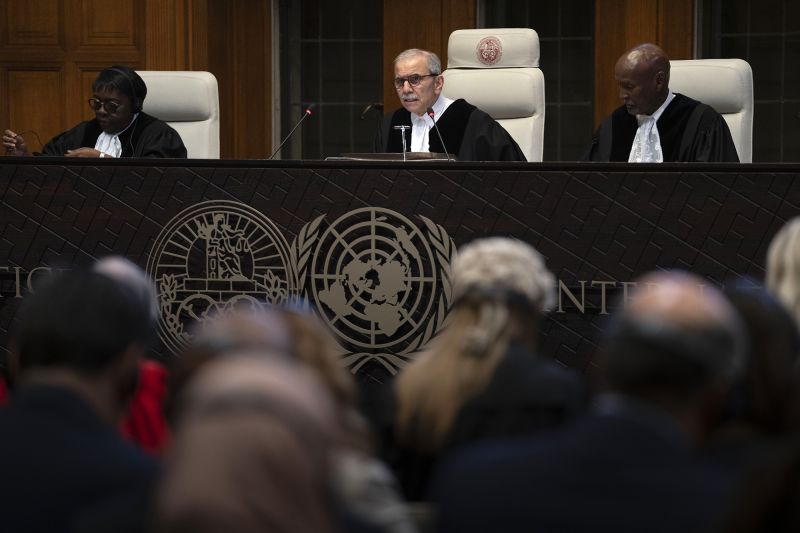The United Nations’ top court, the International Court of Justice (ICJ), has recently issued a historic and transformative verdict, ordering Israel to ‘immediately’ halt all its operations in Rafah. This far-reaching decision has opened up a plethora of international law questions and brought the prolonged Israel-Palestine conflict back into the spotlight.
Rafah, a city located on the border of Egypt and the Gaza Strip, has been a central fulcrum in the longstanding political turbulence that has plagued the Middle-East region. The city has undergone numerous military operations and has witnessed a multitude of civilian casualties, fearsome warfare, and destruction of essential infrastructure. This latest development from the UN’s top court represents a significant intervention in this ongoing dispute.
The ICJ ruling is based on its interpretation of international law and various international agreements. The court cited the Fourth Geneva Convention that forbids an occupying power from transferring parts of its own civilian population into the territory it occupies as a major point. This point appears to focus specifically on Israel’s settlement activities, which have been a recurring point of contention in negotiations about the region.
The judgment also referred to the principles of proportionality and necessity, both of which have been major underpinnings of international humanitarian law. These concepts have been applied in the past to constrain the use of force in conflict situations, insisting on the minimization of civilian harm, limiting actions to what is needed to achieve a legitimate aim, and discouraging excessive or indiscriminate force.
Another salient point was that the court’s judgment also considered the widespread humanitarian consequences of the operation in Rafah, a focus consistent with increasing global attention to the perspective of vulnerable people, particularly civilians, in conflict areas. The court vividly illustrated the distressing conditions in Rafah, a city besieged by constant military operations, replete with infrastructural wreckage and diminished living conditions.
These humanitarian concerns have only been exacerbated by the protracted blockades on Rafah. Resulting in restricted access to essential goods and services, these blockades have had a stark cumulative impact on the civilian population and have constituted a worrying trend of collective punishment.
This unprecedented proclamation by the International Court of Justice may impact not only the dynamics of the Israel-Palestine conflict but also how international law poses constraints on military operations, globally. It presents an opportunity to reinforce the sanctity of international law and human rights, strengthening the checks on power structures and protecting the vulnerable in conflict zones.
While this ruling has been hailed as a landmark decision, the roadmap to its effective implementation remains unclear. Israel’s acceptance and adherence to this ruling could potentially reshape the norms of conduct within conflict zones, reinforce the sworn protection of civilians in conflict situations, and bring a glimmer of hope for the people of Rafah. However, until that happens, the city hangs in a delicate balance.
In summary, the ICJ’s call to Israel to immediately halt operations in Rafah represents a pivotal moment in international law and conflict resolution. It underscores the importance of adhering to the principles of necessity and proportionality, and the need for particular attentiveness to the humanitarian impact of conflicts. Regardless of the political implications and geopolitical dynamics, this ruling puts at its heart the respect for human dignity and fundamental rights – a core principle that must guide all nations and their actions.




